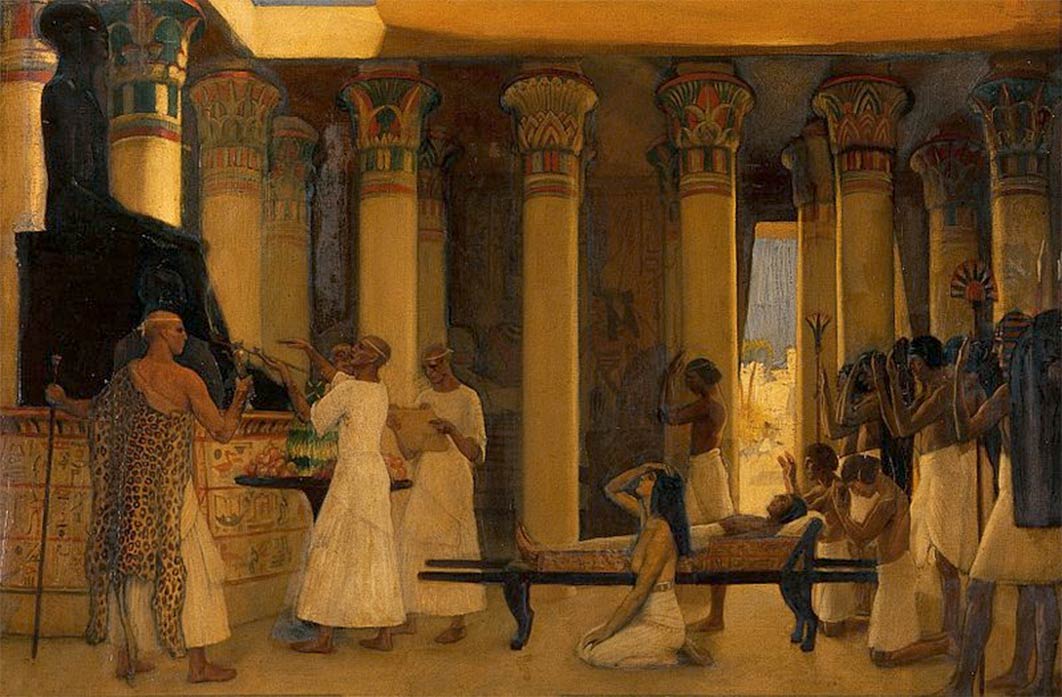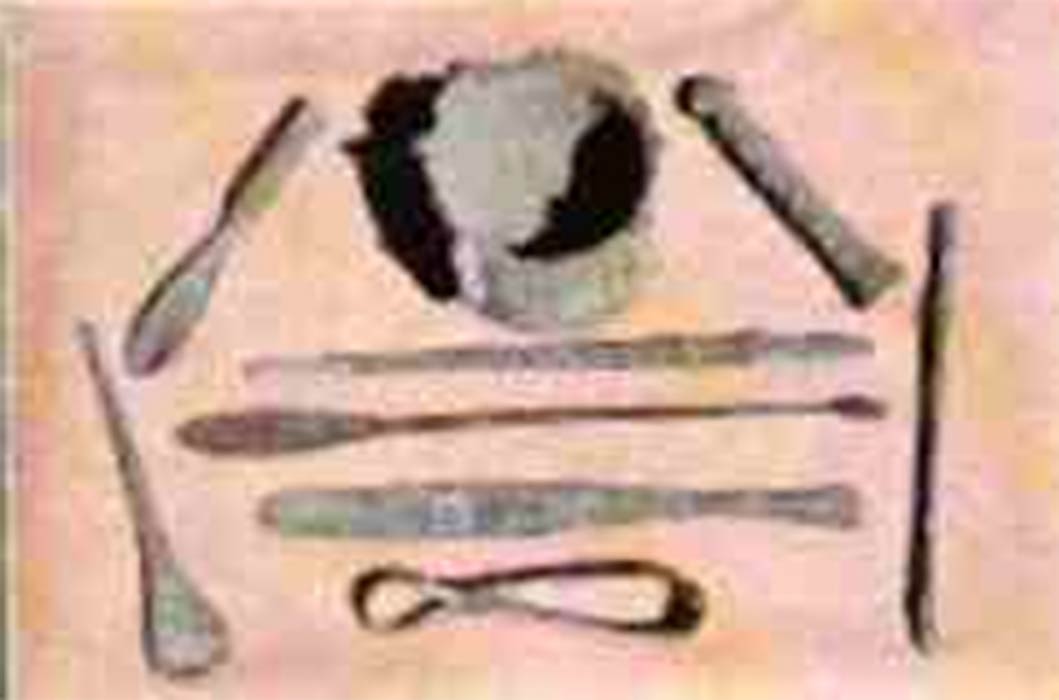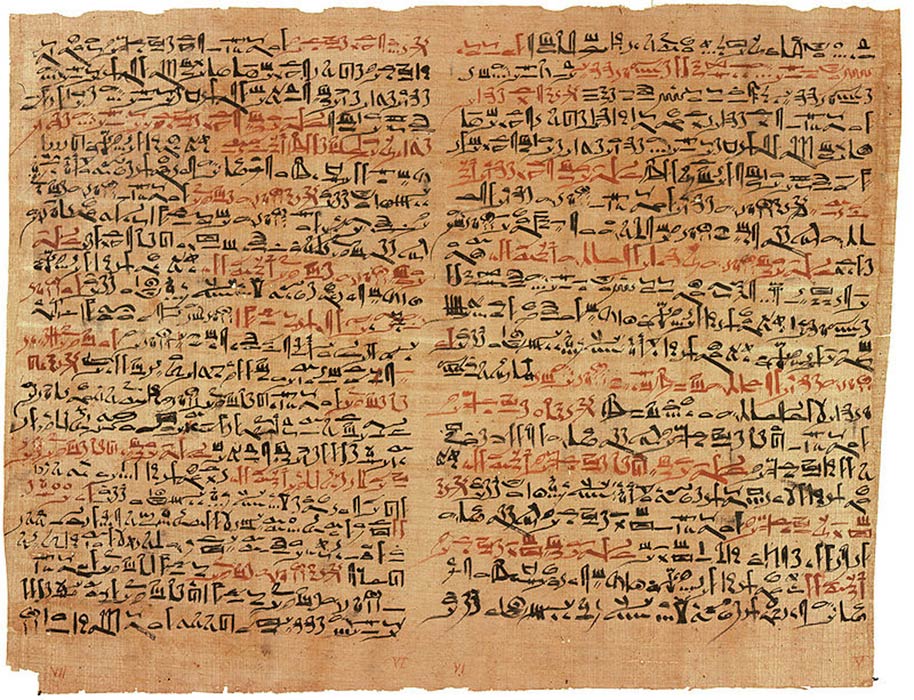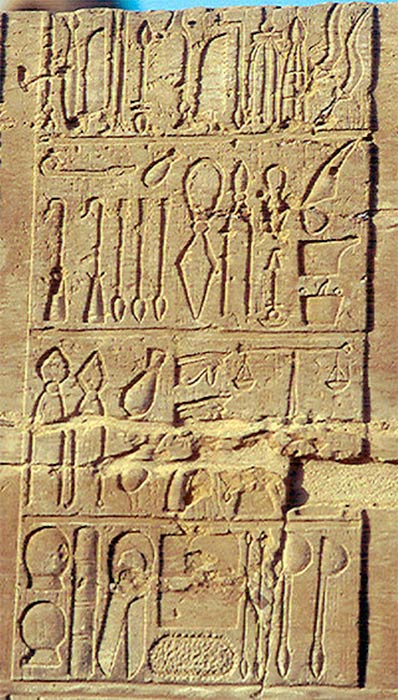
Medicine Of The Gods: Egyptian Secret Book Of The Physician
As in many other areas of endeavor, the Egyptians had a very good reputation for their medical skills - diplomatic letters often made requests for remedies, including the seemingly miraculous, when even the Egyptians saw the joke as in the surviving reply of Ramses the Great to the Hittite king Hattusili who had requested a doctor with a drug to help his 50-something sister become pregnant. Fertility treatments were an Egyptian thing, but in this case, Ramses suggests a miracle worker might be more appropriate.

Ancient Egyptian surgical tools (CC BY-SA 3.0)
Egyptians formulated the first disease theory in history, predating traditional Chinese medicine and Ayurveda by at least a 1,000 years, perhaps more, referring to the Pyramid age and before. A most important contribution to world medicine is its pain-substance theory, which was hugely influential on subsequent medical systems, or could even be regarded as their origin. Egyptian medicine operates on a detoxification model, integrated into other aspects of old pharaonic culture, especially in the techniques of mummification, where the impure substance that causes decay or pain must be eradicated. Egyptian medicine, like many traditional systems, has an important pharmacopoeia of plants and minerals, which can be exploited in modern therapies. Basically, Egyptian medicine lives on in other systems that came after.

The Edwin Smith Papyrus documents ancient Egyptian medicine, including the diagnosis and treatment of injuries (Public Domain)
Papyrus Ebers Secret Book Of Physician
One of the oldest text books known now as Papyrus Ebers, but to the Egyptians as The Secret books of the Physician provides in a nutshell everything one needs to know about Egyptian medicine. It says: “I came from Heliopolis with the priests of the great temple, the lords of eternity and possessors of the means of protection.” This implies the long lineage to this knowledge, that starts with priests and scribes in the temple, specifically knowledge that comes from the aptly named ‘House of Life’ . The ‘House of Life’ was a library of treasured books that every temple possessed, even the smallest would have one or two books. A major temple such as that at Edfu would have several special rooms set apart, with often the walls decorated with examples of key formula, as in the well-known ‘Laboratory of Edfu’ where many special incenses and drugs were prepared.

Ancient Egyptian medical instruments depicted in a Ptolemaic period inscription on the Temple of Kom Ombo (Jeff Dahl /CC BY-SA 3.0)
At Heliopolis, (meaning City of the Sun) - the Greek name for ancient Iunu – which used to be a major cult center although little now remains, there must have been an equally impressive library. It is also the focus of Egypt’s most famous theology or family of gods, all ultimately emanating from the All-Father Sun God Ra, Shu & Tefnut, Geb & Nwt and the five children, Isis, Osiris, Seth, Nephthys and Horus the Elder.
- Hathor: Goddess of Joy and Motherhood Near the Nile
- Egyptian Demons and Magic: Exorcising Evil Spirits
- Edwin Smith Papyrus: 3,600-Year-Old Surgical Treatise Reveals Secrets of Ancient Egyptian Medical Knowledge
The text goes on: “I came forth from Sais, where the mother of the gods [Neith] lives. These are my formulas as created by the master of the gods, for hunting down the countless evils of gods, goddesses.”
So, the author of the text presents everything he has learnt, all the formulas. He visited several centers, such as Sais in the Egyptian delta, the home of another very ancient goddess, in effect the grandmother ancestor of the gods, famed for her letter writing - and hence the collection of prescriptions. But interestingly, these formulas, ultimately created by the master of the gods, Ra, are used to chase down the countless evils of the gods and goddesses themselves, who are often implicated as causes of disease. This is a familiar pattern in study of traditional medicine, that gods and goddesses can be a cause of disease. All the Egyptian gods seem to be so accused, but the most famous is the lion goddess Sekhmet, the ferocious aspect of Hathor. Sekhmet is known as the plague goddess. So strong is this relationship between Sekhmet and disease that doctors




